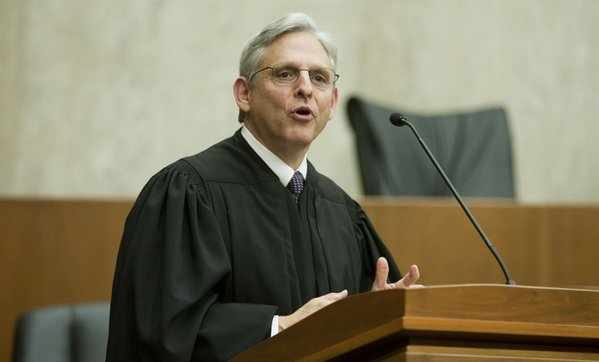
While pressure for Senate Republicans to meet with Supreme Court Justice nominee Merrick Garland continues to rise, it looks like the wait is slowly breaking free from the Congressional limbo.
According to the New York Times, Republican Senators Susan Collins of Maine and John Boozman of Arkansas are scheduled to meet with Garland on Tuesday. On March. 30., Senator of Illinois Mark Steven Kirk met face-to-face with the nominee, becoming the first Republican senator to come face-to-face with Garland.
“We should be doing our job,” Senator Kirk said, according to the Los Angeles Times. “We need… a rational, adult, open-minded consideration of the constitutional process.”
In an interview with a radio WGAN-AM in Maine, Senator Collins emphasized the senate’s responsibility in holding votes for SCOTUS nominees.
“I’m sure there’s some people who are unhappy with me, but this is a solemn responsibility and is very important,” she said.
Before Obama’s nomination, Senate Republicans vowed to withhold any confirmation meetings or hearings with Garland, in anticipation of selecting a conservative nominee for the life-long position should a candidate from their party win the Nov. 8 presidential election.
While the Senate does hold the right to bar a justice’s nomination for reasons based on merit, sophomore Mason Ledgering believes it is the constitutional responsibility for the Senate to assist with the selection process.
“The Constitution says the president should nominate a Justice by and with the advice and consent of the senate, so it’s a joint obligation,” he said. “But what Republicans are saying today is they will block the president’s nomination before they even know who it is. That practice is what I, and the Constitution, disagree with.”
Junior government and politics major Anai Perez noted that she understands why Senate Republicans would want to block the selection, despite the amount of Garland’s qualifications.
“I do see the Republican’s reason for not wanting to have any hearings, and much less vote and potentially confirm a nominee if they believe a nomination from Obama will solely nominate someone to give Democrats a political edge over the Republicans,” she said.
While he agrees with many of Garland’s ruling records, Ledgering believes most Republicans will continue to refuse meeting with the nominee.
“I’ve looked at his ruling record and I agree with a great majority of it,” he said. “Republicans aren’t even going to give him a chance, even though he’s probably just about as conservative a judge any Democrat president would pick for office, which is a sad day for Merrick.”
Perez finds the blocking to be contradictory, especially since Republicans have often praised Garland in the past.
“This felt like more of a political move because prior to the Republicans vowing to block hearings, Merrick Garland was often praised by Republicans, she said. “I’m sure by nominating him, Obama might have thought that it was more likely that his nomination would be confirmed before a new president was elected.”
Garland has served as the Chief Judge of the United States Court of Appeals for the District of Columbia Circuit since 1997, when he was appointed by former President Bill Clinton.
According to a report by CNN, at least seven of the Republican senators who confirmed Garland for his appointment as Chief Judge continue to hold office, including Senator Dan Coats, Thad Cochran, Susan Collins, Orrin Hatch, Jim Inhofe, John McCain and Pat Roberts.
The ninth Supreme Court Justice will replace Antonin Scalia, who died of natural causes in West Texas’ Cibolo Creek Ranch on Feb. 13. Scalia had served on the high court since 1986, when Ronald Reagan appointed him.
According to The White House, The Senate has more than 300 days to consider and confirm a nominee.













